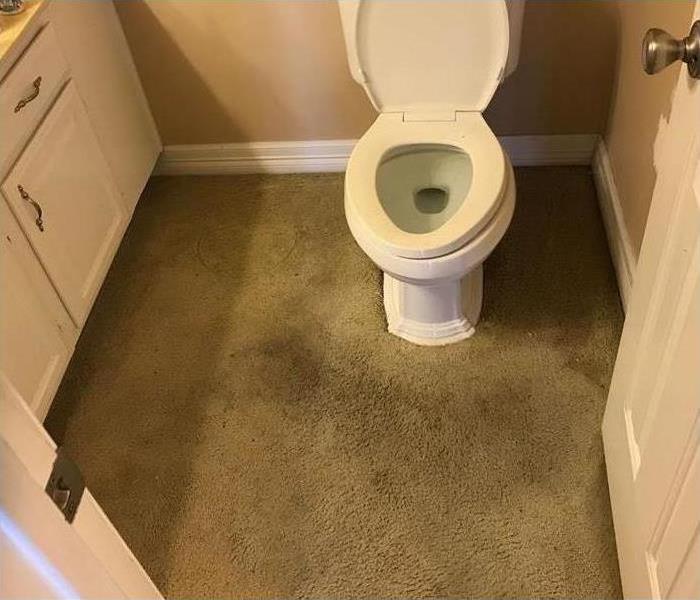Most Common Causes of Water Damage
9/19/2023 (Permalink)
Water damage can result from various sources, and it's a common issue that can cause significant property damage and financial losses. Here are some of the most common causes of water damage:
Leaking or Burst Pipes: Plumbing issues, such as leaking or burst pipes, can lead to water damage. This can occur due to corrosion, freezing temperatures, high water pressure, or physical damage to the pipes.
Appliance Malfunctions: Household appliances like washing machines, dishwashers, refrigerators, and water heaters can develop leaks or malfunction, causing water to flood the surrounding areas.
Roof Leaks: Damaged or deteriorating roofs can allow rainwater to penetrate the structure, leading to ceiling leaks, attic damage, and interior water damage.
Clogged or Backed-Up Drains: Blocked sewer lines or drains can result in wastewater backing up into sinks, toilets, or bathtubs. This contaminated water can cause significant damage and health hazards.
Heavy Rain and Storms: Severe weather events, including heavy rainfall, hurricanes, and flash floods, can overwhelm drainage systems and lead to water infiltration into homes and businesses.
Foundation Cracks: Cracks in a building's foundation can allow groundwater to seep into basements and crawl spaces, causing structural damage and mold growth.
Malfunctioning Sump Pumps: Sump pumps are designed to prevent basement flooding by pumping out excess water. When these pumps fail or lose power during a storm, basements can flood.
Poorly Sealed Windows and Doors: Improperly sealed windows and doors can allow rainwater to infiltrate, leading to interior water damage and mold growth.
HVAC Issues: Problems with heating, ventilation, and air conditioning (HVAC) systems, such as condensation buildup or clogged drain lines, can result in water damage.
Natural Disasters: Events like earthquakes, tsunamis, and wildfires can cause widespread water damage through various mechanisms, including flooding, mudslides, and firefighting efforts.
Humidity and Condensation: High indoor humidity levels and condensation can promote mold growth and structural damage over time, especially in poorly ventilated areas.
Bathroom Leaks: Leaks around showers, bathtubs, sinks, and toilets can occur due to deteriorating caulk or grout, leading to water damage in adjacent areas.
Ice Dams: In cold climates, ice dams can form on roofs, preventing proper drainage of melted snow and ice. This can result in roof leaks and interior water damage.
Gutter and Downspout Issues: Clogged or damaged gutters and downspouts can cause rainwater to overflow and pool near the foundation, potentially leading to basement flooding.
Lack of Maintenance: Neglecting regular maintenance, such as inspecting and repairing potential problem areas, can contribute to various water damage issues.
Preventing water damage often involves routine maintenance, timely repairs, and proper installation of water-resistant materials. In cases where water damage occurs, it's crucial to address it promptly to prevent further damage and mitigate potential health risks associated with mold and mildew growth. Homeowners and property managers should also consider having appropriate insurance coverage to help mitigate the financial impact of water damage events.






 24/7 Emergency Service
24/7 Emergency Service
